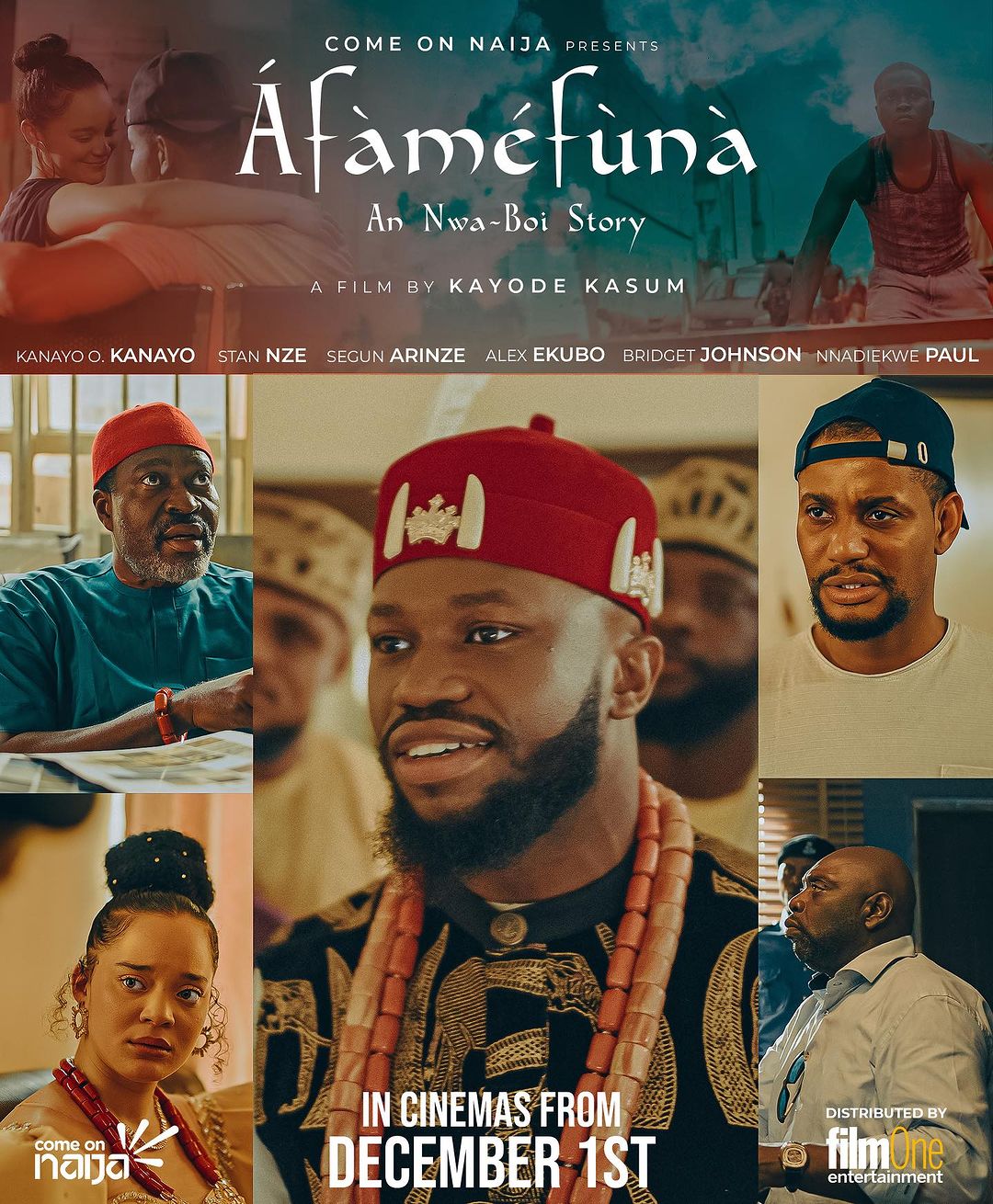
I developed an affinity for the Igbo language once I learn Chinua Achebe‘s ‘Issues Fall Aside’ for the primary time. The magnificence with which the phrases rolled off the tongue, the sensible proverbs, and the context during which they had been used made the language very interesting. Nonetheless, it was by Chimamanda Ngozi Adichie‘s books that I fell utterly in love with the language. Not like Achebe, Chimamanda gives translations for the Igbo phrases she makes use of. Whereas studying ‘Zikora’, I got here throughout a personality named Mmiliaku, which implies wealth that flows like water. At the moment, I used to say a prayer that went like this: “Expensive God, I would like Mmiliaku.” It’s superb how the phrases and names are so concise but so wealthy and expansive in which means.
In order somebody keen on the language, watching Áfàméfùnà, directed by Kayode Kasum, was extra of an admiration exploration. Whereas it doesn’t take away the inventive parts, I used to be significantly serious about listening to the characters converse Igbo fluently, a distinction from earlier Igbo films which had been largely in English.
The film opens Igbo’s exuberant burial ceremony which opens the story of a younger man named Áfàméfùnà, robed in his isiagu apparel and being sprayed wads of cash notes. From the opening scene, the film settles us into the right Igbo tradition with dances and flute sounds earlier than an arrest that can usher us into this Nwa Boi’s story.
As a younger man, Áfàméfùnà’s (additionally known as Afam) mom brings him to Lagos to be taught enterprise from his uncle, Odogwu, performed by Kanayo O. Kanayo. Upon arrival, his uncle assigns him to his finest apprentice, Paul, who teaches him tips on how to acquire prospects and turn into sensible within the streets of Lagos. As time passes, their friendship grows stronger, and so they begin defending one another’s secrets and techniques. As an illustration, Paul has an affair with Odogwu’s daughter, Amaka, which Áfàméfùnà involves learn about. Though Afam additionally fancies Amaka, he can’t specific his emotions, and might solely admire her from a distance. However time will inform if there’ll finally be a love story between Afam and Amaka or not.
Áfàméfùnà exposes the viewers to many points of the Igbo tradition. We not solely see the modus operandi of the apprenticeship system and the lifetime of a Nwa Boi by the leans of Paul as he teaches Afam, we additionally study its historical past. As narrated by Odogwu, the Igbo apprenticeship system began after the Biafran Warfare when 20 kilos was accorded to the Igbos. It was from that cash they began to conduct companies and develop. As their companies grew, Odogwu says, “Many merchants began taking in Nwa Bois for buying and selling. After coaching them, they are going to be settled with cash and store. They arrive to their grasp’s store to hold items. The extra you promote and remit cash, the extra items you’ll carry. Then the settled apprentice will usher in a brand new apprentice and likewise train them the commerce. That’s how it’s completed. Enterprise shall be good. That’s how the Igbo enterprise began rising thus far. Whoever doesn’t perceive one thing shall be taught by his brother. Igbo persons are blessed with information in working companies.”
The foremost takeaway from Áfàméfùnà is knowing how the Igbo tradition and apprenticeship system work on a floor degree. As a Yoruba man, watching the film makes me realise how effectively the Igbos run their communities on partnerships, brotherhood and belief. Odogwu says, “The Igbo enterprise empire is constructed on brotherhood and exhausting work” He alludes to a proverb that claims, “Wherever you go and you don’t see an Igbo man, it is best to run.” Really, I imagine that anyplace you go and you don’t discover a Nigerian, it is best to run. However that’s by the best way.
In accordance with the rule of this enterprise mannequin, the boss should knight an apprentice, (which is called freedom), earlier than the apprentice can arrange a enterprise. Paul is predicted to be knighted however the desk turns and Áfàméfùnà is knighted, and this ignites the feud between Paul and Áfàméfùnà. With the knighthood feud within the background, Áfàméfùnà and Amaka get married and Paul, all through the film feels every little thing that belongs to him is stolen by Áfàméfùnà. That’s when the blackmail begins.
From the dialogue, to the scenes, cinematography, and each different inventive ingredient of Áfàméfùnà, we see elements of the Igbo tradition amply represented and even defined. From the film, we perceive why ladies can’t be ‘Nwa Boys’. We additionally perceive why Áfàméfùnà didn’t hesitate to take Lotanna as his son even after discovering out the reality. Utilizing the narration of Áfàméfùnà to inform the whole story is an excellent transfer by the director. The cinematographer additionally did a superb job of capturing all the weather to assist viewers correctly perceive the apprenticeship and Nwa Boy story. Usually, the film manages to indicate us what’s necessary. One of the best a part of watching Áfàméfùnà, for me, is how comfy the characters are in talking their language, particulaly as a result of I’m used to watching them in English films.
Nonetheless, there are plot holes that beg to be stuffed. Why does Áfàméfùnà have to permit himself to be blackmailed when the kid doesn’t belong to him? Is that this concord or the worry of being ridiculed by society? Does Amaka not have the slightest concept that the kid doesn’t belong to Áfàméfùnà? Why is Áfàméfùnà, who might have been interrogated at dwelling, introduced into query when he isn’t responsible of homicide? Why does the police officer must make a name in the midst of an investigation?
Though there are loads of scenes that beg for solutions, Áfàméfùnà: An Nwa Boi Story is the proper artwork to draw anybody to the Igbo apprenticeship tradition. The soundtracks, the language, the rendition of proverbs by Odogwu, and every little thing else seals the enchantment of the Igbo tradition. I’ll give the film an 8/10.


